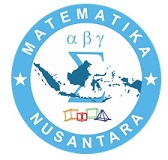MENINGKATKAN KEMAMPUAN PEMAHAMAN MATEMATIS DAN SELF-CONFIDENCE MELALUI PEMBELAJARAN PEER INSTRUCTION WITH STRUCTURED INQUIRY (PISI)
Abstract
ABSTRACT
The background of this study was the students low ability of mathematical understanding and self-confidence. This study aimed at examining the enhancement of students mathematical understanding ability and self-confidence which was taught by using Peer Instruction with Structured Inquiry (PISI) compared to the students taught by using conventional learning. The design of this study was a non-equivalent control group which involved two classes. The first class were taught by using Peer Instruction with Structured Inquiry (PISI) and the second class acquired conventional learning. In obtaining the data, a mathematical understanding ability test and scala self-confidence was used as the instrument. This research was conducted to the second grade students of Mathematic Education Study Program of Galuh University in the academic year of 2016/2017. Data analysis was performed on the normalized gain of two sample groups by using a normalized mean difference test. The results showed that the learning by using Peer Instruction with Structured Inquiry (PISI) was effective in improving the students mathematical understanding ability and self-confidence.
Keywords: Ability of Mathematical Understanding, Self-confidence, Peer Instruction with Structured Inquiry
Full Text:
PDFReferences
Butchart et al. (2007). Peer Instruction in the Humanities. Tersedia : http://www.arts.monash.edu.au/philosophy/peer-instruction/. [10 Februari 2013].
Decha, S., dkk. (2010). The Effectiveness of Peer Instruction With Structured Inquiry on Conceptual Understanding of Force and Motion : A Case Study From Thailand. Research in Science and Technology. 28:1, 63-79.
Ghufron & Rini R.S. (2011). Teori-Teori Psikologi. Yogyakarta: Ar-Ruzz Media.
Hannula, M.S., Maijala, M & Pehkonen, E. (2004). Development of Undersatnding Self-Confidence in Mathematics; Grade 5-8. Group for the Psychology of Mathematics Education. Vol 3, pp 17-24.
Hapsari, Mahrita Julia. (2011). Upaya meningkatkan Self-confidence Siswa dalam Pembelajaran Matematika melalui Model Inkuiri Terbimbing. Tesis Pada PPS UNY: tidak diterbitkan.
Joyce et al. (2000). Models of Teaching, Sixth Edition. Boston: Allyn and Bacon.
Jurdak, M. (2009). Toward Equity in Quality in Mathematics Education. New York: Springer Science+Business Media, LI.C.
Kesumawati, N. (2011). Peningkatan Kemampuan Pemahaman, Pemecahan Masalah dan Disposisi Matematis Siswa SMP melalui Pendekatsn Matematika Realistik. Disertasi pada SPs UPI. Bandung : Tidak diterbitkan.
Molloy, A. (2010). Coach Your Self Mimpi Tercapai, Target Terpenuhi. (Terjemahan Retnadi Nur’aini dari ASPIRATIONS: 8 Easy Steps to Coach Yourself to Succes). Jakarta: Raih Asa Sukses.
Mazur et al. (2002). Peer Instruction : Result from a Range of Classrooms. The Physic Teacher. Volume 40.
Megadomani, A. (2011). Model Pembelajaran Inkuiri Laboratorium Terbimbing untuk Meningkatkan Penguasaan Konsep dan Keterampilan Generik Siswa SMA pada Materi Kelarutan dan Hasil Kali Kelarutan. Tesis pada SPs UPI. Bandung: Tidak diterbitkan.
Megawati. (2010). Perbedaan Self Confidence Siswa SMP yang Aktif dan Tidak Aktif dalam Organisasi Intra Sekolah. Skripsi Universitas Sumatera Utara: tidak diterbitkan
Meltzer, DE. (2002). Addenum to: The Relationship between Mathematics Preparation and Conceptual Learning Gain in Physics: A Possible “Hidden Variable” in Diagnostics Pretest Score”. Tersedia: http//www.physics.iastes.edu/per/docs/Addenum on_normalized_gain. [17 Januari 2012].
Restall et al. (2009). Using Peer Instruction to teach Philosophy, Logic and Critical Thinking. Journal of Computer Assisted Learning. Volume 32. No. 1.
Ruseffendi, E.T. (2005). Dasar-dasar Penelitian Pendidikan dan Bidang Noneksakta Lainnya.. Bandung: Tarsito.
Septiyana, Wieka et al . (2016). Model Pembelajaran Matematika Knisley untuk Meningkatkan Kemampuan Pemahaman Konseptual Matematis Siswa SMP. Jurnal Penelitian dan Pembelajaran. Vol. 9 No.1. Tersedia pada: http://jurnal.untirta.ac.id/index.php/JPPM/article/view/989/790.
Suhandri. (2016). Meningkatkan Kemampuan Pemahaman Matematis Siswa SMP/MTS dengan Menggunakan Strategi Konflik Kognitif. Jurnal Penelitian dan Pembelajaran. Vol. 9 No.2. Tersedia pada: http://jurnal.untirta.ac.id/index.php/JPPM/article/view/1003/801.
Sumarmo, U. (2010). Pendidikan Karakter, Berpikir dan Disposisi Logis, Kritis, dan Kreatif dalam Pembelajaran Matematika. Makalah pada perkuliahan Evaluasi Matematika 2011 SPS UPI: Tidak Diterbitkan.
Surya, Hendra. (2010). Rahasia Membuat Anak Cerdas dan Manusia Unggul. Jakarta: PT. Elex Media Komputindo.
Syarifah, Lely Lailatus. (2017). Analisis Kemampuan Pemahaman Matematis pada Mata Kuliah Pembelajaran Matematika SMA II. Jurnal Penelitian dan Pembelajaran. Vol. 10 No.2. Tersedia pada: http://jurnal.untirta.ac.id/index.php/JPPM/article/view/2031/1573.
Vajoczki et al. (2011). Inquiry Learning: Level, Discipline, Class Size, What Matters?. International Journal for the Scholarship of Teaching and Learning. Volume 5. No. 1. Tersedia : http://www.georgiasouthern.edu/ijsotl. [10 Februari 2013].
DOI: http://dx.doi.org/10.30870/jppm.v11i1.2984
Refbacks
- There are currently no refbacks.
Copyright (c) 2018 Jurnal Penelitian dan Pembelajaran Matematika
Ciptaan disebarluaskan di bawah Lisensi Creative Commons Atribusi 4.0 Internasional .
JPPM (Jurnal Penelitian dan Pembelajaran Matematika). Jurnal ini diterbitkan oleh Jurusan Pendidikan Matematika FKIP Universitas Sultan Ageng Tirtayasa (cetak) dan Jurnal Untirta (eprint).
Alamat Penerbit: Jl. Raya Ciwaru No 25 Kota Serang Banten, Jurusan Pendidikan Matematika, Fakultas Keguruan dan Ilmu Pendidikan, Universitas Sultan Ageng Tirtayasa, Kampus Ciwaru, Serang, Banten, Indonesia. Telepon / Faks: (0254) 280330 Ext 111, Email: jppm@untirta.ac.id |Klik untuk mengakses: Jurnal Penelitian dan Pembelajaran Matematika


